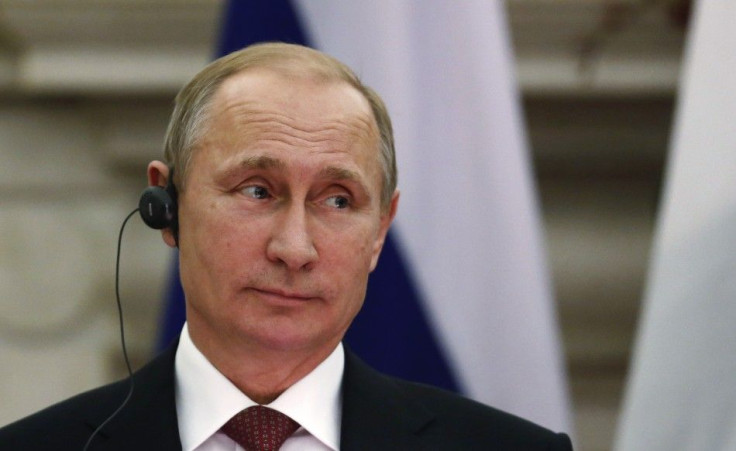Putin Blames Russian Central Bank For Rouble Decline, Admits Lack Of Plan To Fix Economy

Although Russian President Vladimir Putin has assured Russians that the country's economy would eventually recover, he admitted on Thursday in a news conference that he has no solution yet for the worsening crisis following the drastic decline of the rouble.
Since January, the value of the Russian currency had tumbled down 45 percent against the greenback. Mr Putin blamed the country's central bank for not stopping its foreign exchange intervention which had reached over $80 billion in 2014 as it tried to boost the value of the Russian money.
Nevertheless, the president conceded that the central bank, which adjusted upward its benchmark interest rate by 6.5 percentage points to 17 percent on Tuesday, had acted adequately.
But he placed the bigger blame on the west for isolating Russia economically. But the economy minister acknowledge that besides the western sanctions, Russia was caught in a perfect storm of plummeting global oil prices and financial woes.
"If the situation develops unfavorably, we will have to amend our plans. Beyond doubt, we will have to cut some (spending). But a positive turn and emergence from the current situation are inevitable," Reuters quotes Mr Putin.
YouTube/Bloomberg Business
He reckoned it could take two years before Russia recovers, but Mr Putin also admitted it would really depend on the length of time that western nations keep their sanctions on Russia because of its role in the Ukraine crisis.
Beginning on Saturday, members of the European Union would prohibit investment in Crimea in response to Russia's annexation of the Black Sea peninsula. The U.S. is also expected to approve legislation for new sanctions.
However, according to a CNN Money report, all are losers if Russia's economy declines further. It identified Germany as the biggest loser due to the sanctions since trade between Berlin and Moscow was worth $95.4 billion.
Across the bloc, it would also impact food producers in Europe since Russia accounts for 10 percent of food exports in the regional bloc. As a result of the no-export policy, Europe had to pay producers $156 million as compensation.
Also on the losing end are energy companies such as BP which owns a 25 percent stake in Rosneft, the largest oil company in Russia and carmakers such as Volkswagen which suffered an 8 percent drop in sales after the sanctions.





















